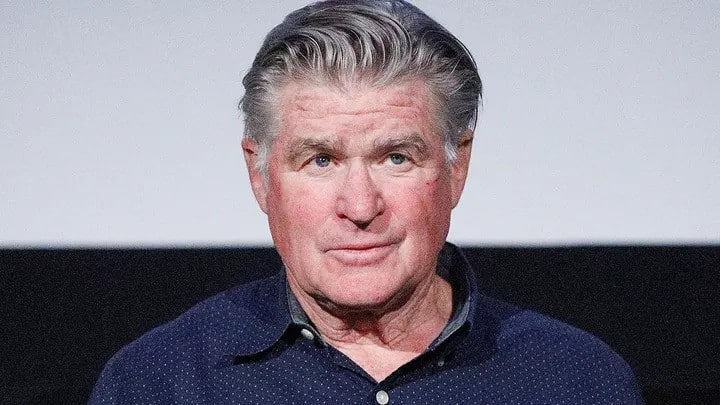
In a poignant courtroom scene in Bennington, Vermont, the community witnessed a heartrending chapter conclude in the tragic saga that unfolded last June, taking the life of esteemed actor Treat Williams.
The defendant, 35-year-old Ryan Koss, faced the legal consequences of a fatal decision that had reverberated through the tight-knit circles of Dorset, Vermont, leaving behind a legacy of sorrow and reflection.
Koss, entrenched in the local arts scene as the managing creative director of the Dorset Theatre Festival, stepped into the courtroom not just as a defendant but as a member of a community in mourning. His connection to Williams was not merely that of two residents of a small town but intertwined through years of shared experiences in the vibrant theater community they both cherished.
The accident on June 12 was a moment that would pivotally alter many lives. Williams, a venerable figure in the arts with a nearly five-decade-long career spanning over 120 roles in television and film, was riding his motorcycle when a collision with Koss’s SUV turned fatal. Despite wearing a helmet and adhering to safety, Williams succumbed to critical injuries after being airlifted to Albany Medical Center.
Koss’s plea of guilty to a reduced charge of negligent driving with death was the culmination of legal proceedings that could have seen him facing up to 15 years in prison. Instead, his sentence was deferred for one year, during which his license will be revoked, and he will engage in a community restorative justice program and mental health counseling. This outcome reflects not just the gravity of the accident but also a community’s desire for healing and accountability over retribution.
The emotional weight of the hearing was palpable as Koss visibly moved, and extended his apologies and condolences to Williams’ family and admirers. “I’m here to apologize and take responsibility for this tragic accident,” he expressed, acknowledging the irrevocable loss his actions had caused.
In an act of profound forgiveness and humanity, Gill Williams, the son of the late actor, wore his father’s jacket to the courtroom and forgave Koss, signaling a poignant moment of closure and compassion amidst grief. “I do forgive you, and I hope that you forgive yourself,” he told Koss, embodying a spirit of forgiveness that underscored the day’s proceedings.
The statements from Williams’ wife, Pam, and daughter, Ellie, though not present, echoed through the courtroom, laying bare the depth of their loss and the void left by Williams’ passing. Ellie’s words resonated with the pain of lost future moments and the indelible mark of her father’s absence.
As the community of Dorset and the broader artistic world remember Treat Williams for his monumental contributions to the arts and his embodiment of life lived to the fullest, the conversation around the incident turns to broader reflections on safety, responsibility, and the fragile threads that connect our lives.
Koss’s sentencing is a reminder of the responsibilities that accompany the privilege of driving, urging a renewed vigilance for the presence of motorcyclists on the road and a deeper consideration of the impacts our actions can have on others.
In the aftermath of the tragedy, the Dorset community and all those touched by the life of Treat Williams are left to navigate the complexities of grief, forgiveness, and the quest for meaning in the wake of loss. The legacy of Williams’ vibrant life and the circumstances of his passing invite a contemplative dialogue on how we can foster safety, compassion, and understanding in our shared journeys.








